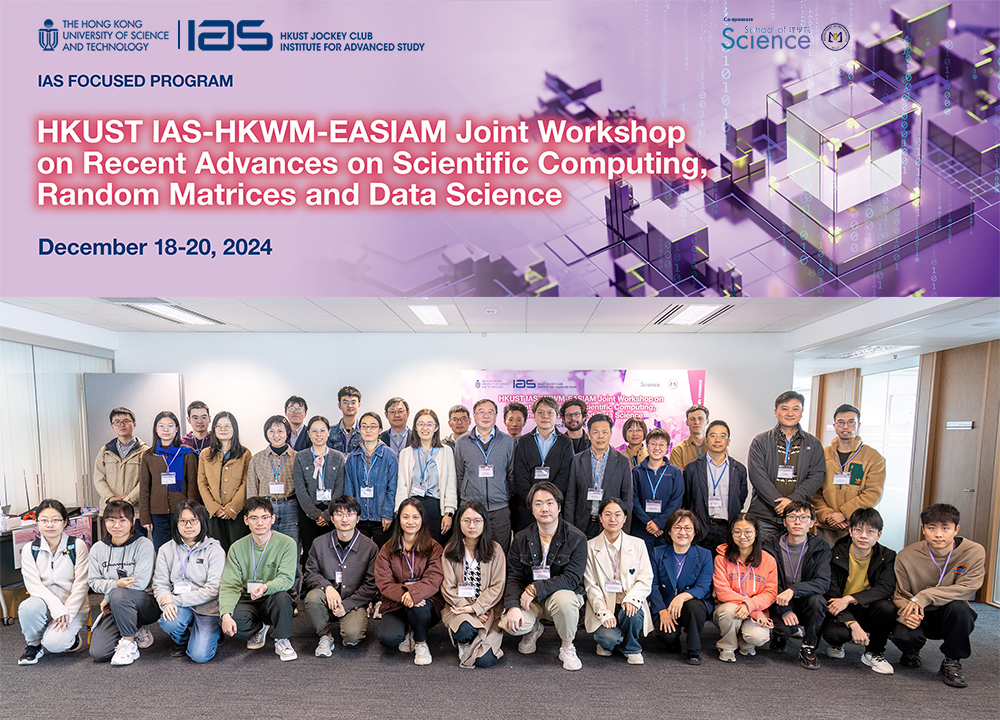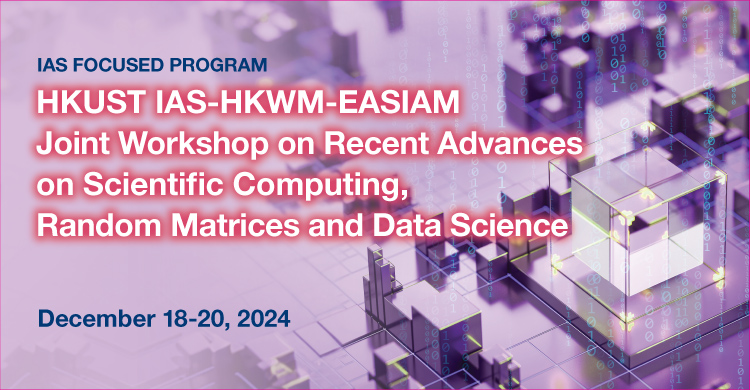| December 23, 2024 | |
| • | Thank you for attending the HKUST IAS-HKWM-EASIAM Joint Workshop on Recent Advances on Scientific Computing, Random Matrices, and Data Science! The group photo is available for download here. More photos can be found in the “Album” section. We look forward to seeing you at HKUST again in the future! |
| December 11, 2024 | |
| • | An email has been sent to all registrants on December 10, 2024, informing them of their acceptance or rejection to the workshop. If you have registered for the event but have not received any communication from us, please reach out to the secretary at ias2024scrm@ust.hk. |
| • | Walk-ins are welcome but admission will be subject to the availability of seats at the venue. |
| December 6, 2024 | |
| • | Online registration is now closed. |
| - The Organizers are currently reviewing all registrations received. | |
| - An email will be sent to all registrants on or before December 10, 2024, informing them of their acceptance or rejection to the workshop. | |
| November 26, 2024 | |
| • | The workshop schedule is now available in the "Schedule" section. |
| November 8, 2024 | |
| • | Registration is now open until December 6, 2024. For details, please refer to the "Registration" section. |
| • | Registration for and attendance at this workshop are free of charge. |
Scientific computing, fundamentally, involves employing computational methods to address partial differential equations that stem from real-world phenomena. It acts as a conduit between theoretical models and practical implementations, empowering researchers to simulate, analyze, and forecast complex phenomena that are either too intricate or too expensive to investigate through experimentation. This discipline is pivotal for deepening our comprehension of various processes in the world and for crafting innovative solutions to urgent challenges within a spectrum of scientific and engineering fields.
Random matrix theory has emerged as a powerful tool with applications spanning from number theory and statistics to wireless communications. Over the past decades, significant theoretical advancements and practical applications have broadened its scope and impact. This workshop aims to foster collaboration among experts in probability theory, statistics, operator algebras, and theoretical physics, driving progress on longstanding conjectures and uncovering novel applications in statistics, machine learning, and quantum information theory.
This workshop brings together researchers from diverse backgrounds and career stages. We particularly emphasize mentoring opportunities for early-career researchers and promoting inclusive excellence in mathematical sciences. The event aims to strengthen international collaborations while fostering the development of the next generation of mathematicians. This workshop is jointly organized by HKUST Jockey Club Institute for Advanced Study (IAS), Hong Kong Women in Mathematics Society, and East Asia Section of Society for Industrial and Applied Mathematics (EASIAM).
Group Photo

Organizers and the participants gather for a group photo.





